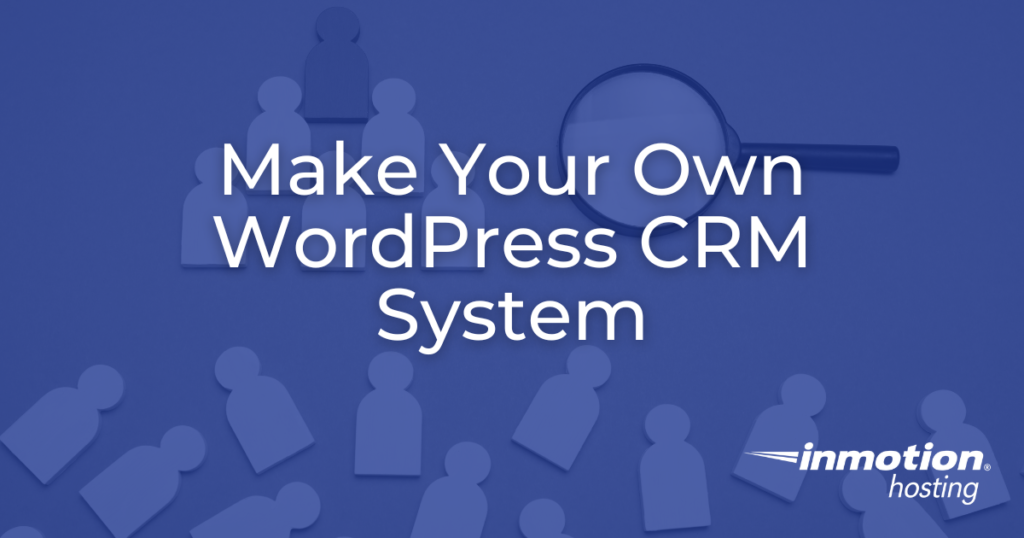
Business relationships need to be cultivated. You wouldn’t leave a friend stranded without any contact. Why treat your business contacts with any less respect?
There are many tools designed specifically for customer relationship management (CRM). This is how important managing your contacts is for businesses. A monomaniacal interest in crafting perfect customer communications is not a bad habit to develop, and the antecedent is good contacts.
A good CRM system gives you a single source of truth for all your contacts and their unique information.
Every contact is different, and you don’t want to treat each one with a uniform script. They all have different needs, different birthdays, different kinds of families, backgrounds, and preferences.
You also need a singular system to organize all outbound communications so you never get caught off guard. Implementing a solid CRM system lets you pick up a conversation exactly where it left off.
Imagine having a “bucket” where new contacts can be stored immediately.
Don’t let a good lead slip away. A good CRM system is quick to update so you can instantly add someone to your contact list.
Most CRM Systems Are Too Big and Too Expensive
If you’re starting a small business, you’ll be looking for places to cut down on costs. But, getting yourself mixed up in a heavy CRM can quickly add hundreds of dollars to your budget. And, without any margin for fancy tools, you’re already on your way out of business.
Bigtime CRM systems are bloated up with a plethora of brilliant, automated, highly stylish, artificially intelligent features that can propel your contact game instantly into high gear. The problem is you may not ever get around to using these tools.
A fancy CRM will require hours, maybe weeks, of training to full implement. And all of this just so you can manage a few contacts?
For many small business use cases, the bigtime CRM system is like driving a tank to the supermarket. It’s dramatic but superfluous.
Build a WordPress CRM System For Yourself
Believe it or not, it’s easier to build a custom CRM out of a bare WordPress installation. A WordPress CRM gives you access to the power of WordPress customized by the need to manage contacts instead of posts.
There are many WordPress CRM plugins on the market. These are not solutions to try out. But you may find that existing plugins on the market give you the same issue as the other big CRMs. They provide you with an array of services you may not need.
WordPress can be a great, simple CRM tool. All you need is a blank WordPress site, privately installed on a local network, and a few plugins. Read on to find out how it works.
Why a Local WordPress Installation?
When it comes to managing personal and business contacts, privacy is key. You will need to collect personal data about your contacts. Otherwise, your CRM tools are useless. The more information you have about them the better.
Better communication starts with better information. That personal touch builds a familial bond. But, all that data comes at a cost; it’s your responsibility to keep it safe.
If someone managed to hack your database, you’ve just betrayed your contacts in a big way, and you could be held liable to cover legal damages. Just don’t let this happen to you.
Creating a Local WordPress Installation For Your CRM Tools
Creating a local WordPress installation is easy, free, and won’t take you more than a few minutes.
With a local WordPress install, your database is contained within your computer, so no one can access it. All you need to do is protect your computer password, and you’re good.
One important caveat for a local WordPress install: only you can access it. This means your security is top-notch, but if you have a team member who wants to share the contact database with you, you’ll need to set up local network sharing.
However, there’s a better workaround than a local network.
Your team members should have contacts assigned to them. This means they could have local WordPress installs as well. This improves security. As a plus, it also allows your team to safely manage their own assigned contacts. Less friction means better workflow.
If someone leaves your team, you can simply import their contacts into another team member’s database.
But, if you prefer having a local network, any IT professional can help you set it up. Just tell them you want a shared WordPress installation accessible on the local network only, and they will know exactly what to do.
Get our Free Step-by-Step Guide to Creating a WordPress Website
Learn the ins and outs of creating a winning WordPress site step-by-step, from start to finish.
The Ultimate WordPress CRM System
Well, maybe it’s not the ultimate in terms of size. But it’s the best for you because you’ll design it yourself. No extraneous stuff. No more costly billing cycles hounding you for remuneration.
Below, you’ll get a detailed rundown of every tool you need to get your CRM tools in action.
Custom Post Type for Contacts
The core component of your CRM is the contact list. Just as a regular WordPress site manages posts and pages, the WordPress CRM manages contacts. To facilitate this list, you need to create a custom post type for contacts.
There are many different ways to accomplish this. There are many high-quality plugins on the market that will give you a custom post type. However, depending on your comfort level, you’re always better off coding something small for yourself.
(Henceforth I’ll be referring to the contact custom post type as a “post” when being edited in the WordPress Dashboard.)
Custom Fields
Now that you have a custom post type, you will need custom fields for specific data collection. You can collect any data you want, but the following are necessary:
- Phone number
- Buying phase
“Name” is suspiciously absent. I’d recommend using the contact’s name as the title of the post. No need to create a custom field for the name.
The phone number and email address are obviously important for contact purposes.
A Word On Buying Phases
The “buying phase” lets you know what stage of the customer relationship you’re in. You can get creative here, and name these phases anything you want, but they should follow a basic formula:
- Awareness (aware of your product or service)
- Interest (interested in learning more or possibly making a purchase)
- Decision (ready to decide on a yes or no to buying)
- Sale (a buying customer)
Every phase in this buying process informs you with regard to the type of communication to engage. For example, in the awareness phase, it may be too soon to start pushing promotions and deals and “talking turkey,” as they say.
Your product is unique, and so is your personality and customer. If you think your customer would respond better to a harder, faster sell, you can employ that tactic. But if you think it’s too soon, you can modulate your tone.
The buying phase will help you decide what kind of tone is appropriate at this point in the relationship.
For many products, the awareness phase is a great time to “inform” your customer. But this doesn’t always mean direct communications. Other options appear during the awareness phase, like:
- Blog posts
- Email newsletters
- Social media posts
- Medium
- YouTube
Awareness is just the beginning, so there’s no need to rush things. During this early phase, take your time to nudge your contact toward interest.
Admin Columns Pro
Now that you have your contacts list and custom fields for data collection, you need to devise a strategy for keeping things organized. This is where customized admin columns.
This is one instance where it’s best for more casual to proficient WordPress users to stray away from custom coding. There is a superior plugin available to create these custom columns and make them sortable.
Admin Columns Pro comes with a free and paid version. This is likely to be the most costly part of your WordPress CRM adventure, but it’s worth it. If you’re unsure that you’ll keep your WordPress CRM long term, I’d recommend starting with the free version of Admin Columns Pro, taking it for a test run, and then upgrading.
Over the long term, the ability to filter and sort by your custom columns is invaluable. And this feature is bundled with the premium iteration.
Customizing Your Admin Columns
Your custom admin columns help you sort your contacts by various criteria. A lot of this will depend on your preference with regard to how you want to view your data.
Most importantly, I’d recommend a column for “Last Updated.” This way, each time you edit a contact’s post, this date and timestamp will be saved.
With the last updated data saved, you can sort contacts by time. For example, if you want to review people who haven’t been contacted in a while, you can sort by last updated in ascending order. Colder contacts will rush to the top of the list.
There are other interesting columns you might want to use such as:
- Unique post ID
- Last comment (a quick view of the most recent comment)
- Date created
- Buying phase (your custom field)
Buying phase is also an excellent column to use for filtering purposes. Imagine you want to view only contacts who are ready to buy, add a filter for that, and you will get a list of all buyers in the decision phase.
Using Comment Logging
Logging communication is the key driver for your highly functional CRM system. Keeping a log of recent communication lets you pick up the conversation right where you left off.
Your contacts will think you have a superhuman memory. Or at least, they’ll feel you value their time and pay attention. Either way, keeping detailed logs of conversations guarantees a win win scenario for you.
To keep a log in WordPress, you should use the comment feature that comes bundled with your post template. If you built a template from scratch, you’ll need to add comments, otherwise they will be enabled by default.
As mentioned above, you can use Admin Columns Pro to get a peek at the most recent comment right from Dashboard view. This is a quick way to peruse through comments.
Your CRM System Is Complete
Now, all you need to do is start adding contacts. If you have contacts into another database, there are tools that can help you port them over. There are also WordPress plugins that can help you import content from CSV files.
However you choose to bring over existing contacts or create new ones, your WordPress CRM system is flexible and can be further customized as your needs change.
